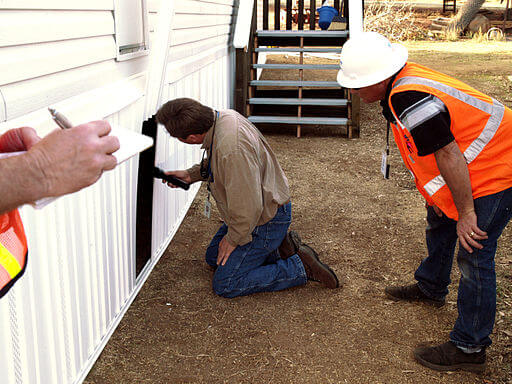6 Home Inspection Fails (+ How to Fix Them)

Closing on your Keller home is a proud moment, but occasionally home inspection fails can ruin the excitement. Sellers know that failed inspections can create expensive scenarios in order to put your home on the market. Buyers know these inspection fails could prevent a final closing. Grove Team presents the following list of common home inspection fails that homebuyers may encounter along with recommendations for how to fix them and continue the sales process for your new home.
1) Water Damage
Nothing ruins a homebuyer’s day quite like the term “water damage.” Seldom is there a scenario where water damage isn’t a major red flag for home inspectors. Standing water is the most obvious form of water issues but others like broken water lines are also concerning. Local municipalities are going to intervene on certain water-related issues, as well, making it an even bigger nightmare for the prospective homebuyer. The good news is that water damage typically falls on the seller’s responsibility list. Since it can be very expensive to repair, it’s best to have the seller take care of it.
Fix: Responsibility typically falls on seller, so defer to them
2) Foundation Problems
Most homebuyers understand that the foundation is the most important part of the property. That’s why inspectors pay extra close attention to potential foundation problems during their inspection. Any issues will create a nightmare for both the buyer and seller because of the expense and work required to fix it. Some examples of foundational issues include, water infiltration, uneven windows or doors, sloped floors, chipped concrete, and inverted grading. Though foundation repair specialists can correct many of these problems, sometimes buyers will walk away regardless.
Fix: Get an estimate from a foundation specialist, and potentially walk away
3) Electrical Issues
Safety is perhaps the most important factor when buying a home, and electrical issues can threaten that safety immediately. Home inspectors will typically look for electrical problems that may cause fires, though they cannot always check ceiling interiors. In fact, most house fires are caused by bad electrical wiring. The bad news is that it can cost a massive amount of money to fix. Good inspectors will notate any code violation found during the inspection along with spliced wires which are more easily fixable. If an inspector cites issues, you should hire an electrician to give an estimate.
Fix: Get an estimate from an electrician
4) Pest Control
Nobody moves into a new home hoping to find pests inside the house. Inspectors will typically notate any signs of pest problems which can be a nightmare for both the buyer and seller. Termite damage is the most common form of pest infiltration, and the one most easily spotted by home inspectors. Termites can literally destroy the house if the problem is not resolved. Not only must the termites be exterminated, but any existing wood damage must also be corrected to maintain the home’s structural integrity. Other pest issues include rodents within the attic, which will sometimes chew on wires and other essential property.
Fix: Get a pest control estimate and have trees trimmed to prevent attic pests
5) Mold Infiltration
Not all mold is a major health concern, but certain types are: including black mold. If an inspector finds black mold on the property, it’s going to become a major issue with completing the sale. Black mold is most commonly detected within crawlspace or basements which can make it go unnoticed to the untrained eye. Aside from the potential health threat, mold can also be symptomatic of structural issues or even plumbing issues. In either case, the source of the problem must be addressed. Depending on the depth of the issue, this process can be a very expensive ordeal.
Fix: Diagnose the root problem, and hire the appropriate service to address it.
6) Air Pollution
In 2020, most home inspectors will give buyers the option to test for radon or asbestos. A positive test for either represents a significant home inspection fail. Addressing air pollution inside the home is critical for homebuyers since their health is threatened by these revelations. Although home testing kits are available to monitor pollution levels, any homebuyer will want to hire a professional to address the problem directly. You shouldn’t move into the home until the test has been re-administered and has come back negative. Never put yourself or your family at risk.
Fix: Hire asbestos abatement company for an estimate

